BUILT CoLAB is in the final stages of implementing its developments under the INTENT project.
INTENT is a project funded by the Foundation for Science and Technology (FCT) that aims to investigate the use of Bender Elements to monitor the condition of pavements and BUILT CoLAB has developed the necessary conditions for the tests to be carried out in a real environment.
To this end, the BUILT CoLAB team has developed the necessary monitoring architecture, which allows immediate or scheduled data acquisition to be carried out remotely. This system logically coordinates all the equipment involved in the acquisition process: a signal generator, an oscilloscope, a relay platform controlled by a microcontroller for switching the signal transmission between the various pairs of emitting Bender Element sensors, emission and reception amplifiers connected to a smart socket for remote and controlled power supply management, an environmental sensor and SmartRock inertial sensors.
This system was installed in a real environment at the site to be monitored, a Mota-Engil quarry in Penafiel, which allows continuous monitoring of the structural behaviour of granular soil under real conditions, as well as correlation with the heavy traffic of heavy vehicles (mainly trucks) that circulate on the experimental stretch.
This installation operation was a success and involved the joint and coordinated efforts of all the organisations involved in the project: BUILT CoLAB, Instituto Superior Técnico, Universidade Lusófona, Universidade do Minho, Mota-Engil and LNEC.
BUILT CoLAB carried out the full installation of the orchestrator system it developed, which included:
- The assembly and configuration of all the equipment (with the support of the University of Minho in the installation of the amplification system)
- The physical connection of all sensors to their respective acquisition modules
- Datalogger integration
- Assembly of the technical shelter, including air conditioning system
- Electricity supply management and grid connectivity.
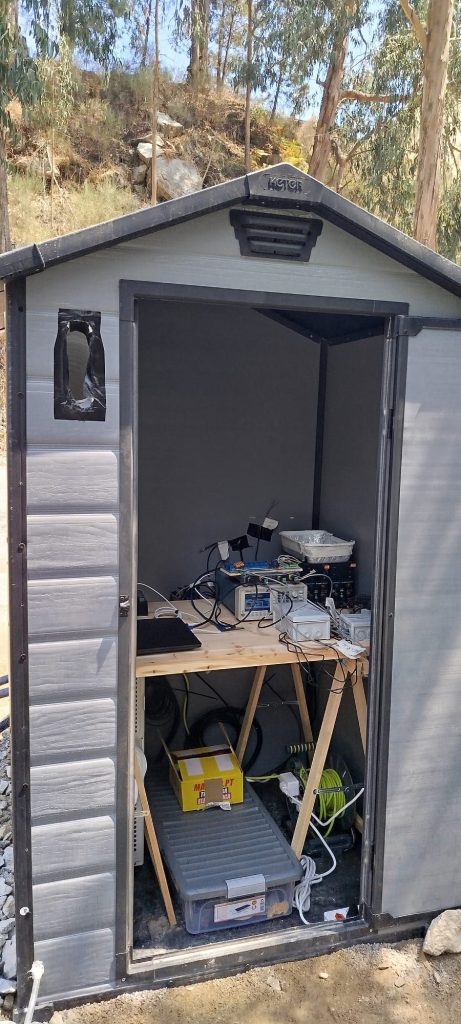
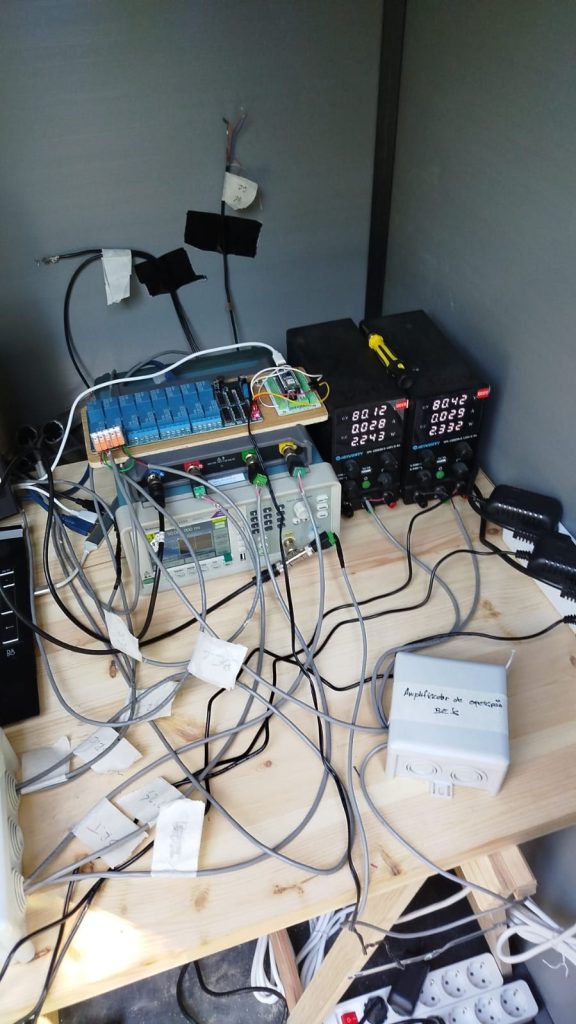
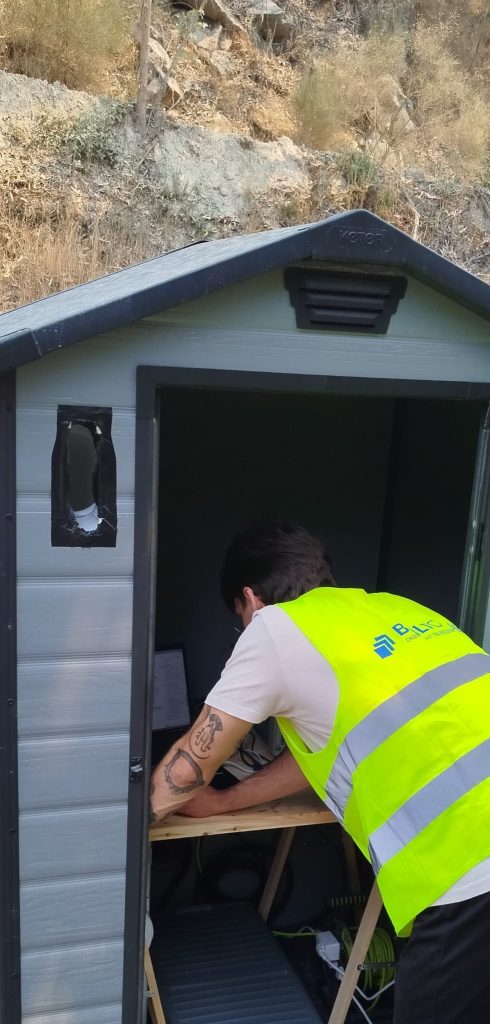
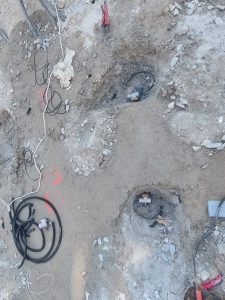
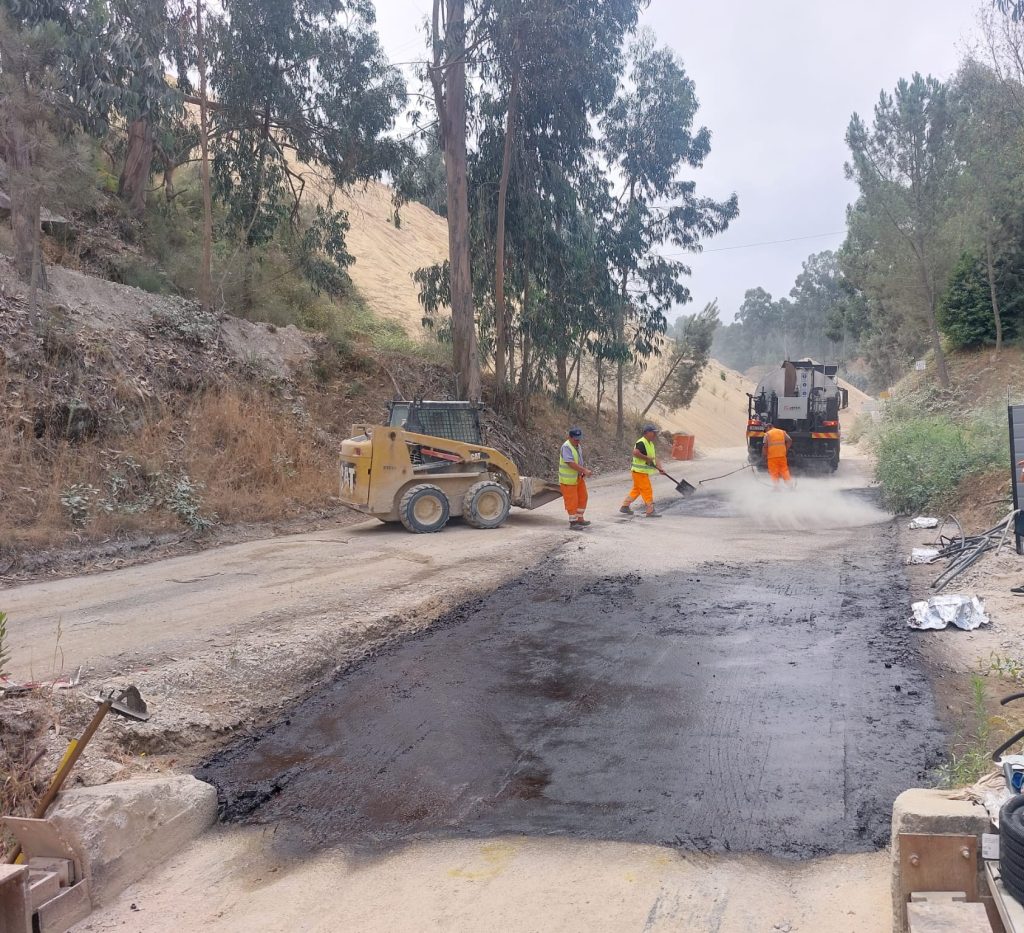
This installed infrastructure is now able to carry out systematic and automatic data collection in real time, providing the basis for continuous characterisation of the response of local granular layers. The first results acquired in the meantime are encouraging and reveal the system’s ability to capture coherent signals that are compatible with previously obtained laboratory results.
The data collected will make it possible, in the next phases, to carry out detailed analyses, cross-calibrations with field tests, and feed interpretative and predictive models based on Artificial Intelligence.
Over the next few months we’ll be sharing more specific information about all the work we’ve done on our website. Stay tuned!

